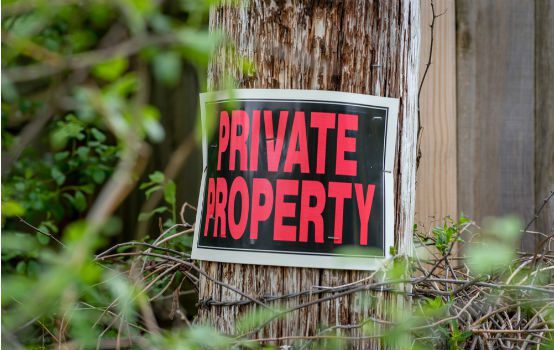Why the Public Must Revolt Over Eminent Domain

Most of the time, Boise State University’s claim to fame is its blue turf football field.
But now BSU is garnering attention for something very different: its attempt to seize private land through eminent domain. The reason? It wants to build a baseball stadium for a team that does not yet exist. This has sparked outrage from the public, which sees it as not only exacerbating the community’s housing affordability crisis, but showing just how unimportant private property is in Boise.
In 2018, Boise was recognized as the fastest growing city in the nation. Some 20,000 people have moved into this metro area of just over 700,000 in the course of 12 months, and the influx shows no signs of slowing. For all the positives that accompany a booming economy and an expanding community, residents of the Boise area have still felt the crunch of a city bursting at the seams. They complain of traffic jams, skyrocketing property taxes, crowded parks and venues—there’s simply too much growth for them to keep up with.
But nowhere is this crunch felt more than in the housing market. Home values have gone up 15.6 percent in the past year, while the average home is only on the market for seven days. Countless Idahoans have been priced out of the housing market (myself included). The future is no brighter for those looking to rent an apartment—a recent Housing and Urban Development analysis estimated that new construction will cover less than half the number of new apartments Boise will need by 2019.
Into all this charged environment came BSU, looking to demolish multiple apartment buildings for the purpose of building a baseball field.
There’s one other property against which BSU filed eminent domain proceedings: a parking lot owned by a local church. Perhaps the most egregious part of this whole ordeal is that they sought to seize this privately owned parking lot for the sole purpose of building a publicly owned parking lot.
Such a use of eminent domain raises frightening questions that have national implications. Could a university condemn privately owned student housing to build a new dorm? Could city officials demolish a neighborhood community center to construct a public park? Can any government entity seize private property to replace it with public property that serves a similar purpose?
BSU’s actions are symptomatic of eminent domain’s gross expansion in recent decades. The Fifth Amendment limits eminent domain to situations in which the taken property will be put to “public use.” But the Supreme Court obliterated this limitation in 2005 in Kelo v. City of New London, a suit brought by Susette Kelo and her neighbors against New London, Connecticut, when their property was seized by the city and given to the pharmaceutical giant Pfizer. The Court held that taking property and handing it to a private developer qualified as a “public use” in the name of economic development, even though it demolished Susette Kelo’s home along with her neighbors’. In the end, Pfizer pulled out of the city without ever developing anything on the land. It didn’t matter—precedent was set. Today, almost every eminent domain attorney knows that prevailing against a government agency is nearly impossible in condemnation proceedings. The only hope is to receive increased compensation for the seizure.
State courts, federal circuit courts, and the U.S. Supreme Court have all failed to protect the public from government abuse through eminent domain. This has left only one court in which the protection of private property remains possible: the court of public opinion. That’s where we must stand up against the government seizing our homes. Public officials have to feel the heat when they stand idly by amidst cronyist land grabs.
In the wake of the Kelo decision, which elicited one of the most explosive reactions of any 21st-century court case, 44 states strengthened protections against the abuse of eminent domain for private development and dozens of looming projects were thwarted by community activists. This was all accomplished through the outcry of an indignant citizenry after seeing government abuse its power.
The public outrage in Boise has been strong. Numerous city, county, and state officials voiced their opposition to the university’s action. Hundreds of residents have petitioned BSU officials to cease the proceedings. In the wake of this outrage, the university has thankfully dropped its eminent domain filing against the local church and will continue negotiations over the parking lot. Officials remain in talks with the owners of the housing units.
For those passionate about protecting property rights, this is an important lesson: eminent domain cases brought against the government might lose in the courts, but they can still be won in the hearts and minds of the people.
Phil Haunschild is the senior policy analyst at the Idaho Freedom Foundation and a contributor at Young Voices.
Comments